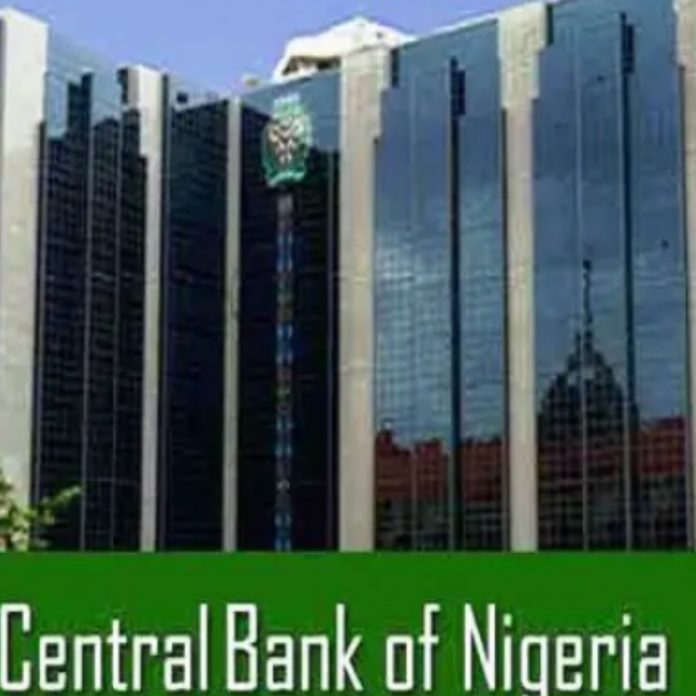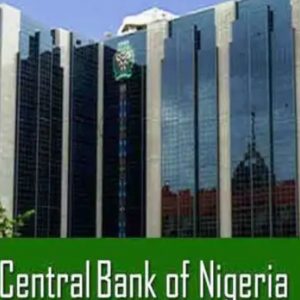CBN Headquarters, Abuja
By Our Reporter
The Central Bank of Nigeria (CBN)seems to be literally swimming in a pool of confusion as it issued conflicting statements in the last few days.
The CBN on Friday threw depositors into confusion as it gave conflicting orders on the deposit of old N1,000 and N500 notes.
The conflicting orders emanated from media reports based on anonymous briefings by senior officials of the bank, a memo that the bank reportedly gave to commercial banks, and an official statement issued by the bank, all within six hours.
The resulting confusion lasted till Friday evening even as depositors thronged and overwhelmed CBN offices across the country trying to deposit N500 and N1,000 notes to no avail.
Early Friday morning, a senior official of the apex bank had given an anonymous briefing to one of our correspondents that Deposit Money Banks had been directed to receive the old N500 and N1,000 notes from depositors. The PUNCH later relied on this official’s remarks to publish a story to that effect.
The official had told one of our correspondents, “Go to your bank but fill the form before you go. Go with the reference code you generate. With your code, banks will collect the old from you. But if the amount is more than N500,000, you will have to go to the CBN and deposit it.”
Earlier, the CBN opened a portal on its website and made it mandatory for those willing to return old notes to fill a form and generate a code.
A few hours after its official spoke to The PUNCH, the CBN issued a statement refuting the official’s remarks, while also seeking to blame the media for the fiasco.
However, the CBN’s rebuttal contradicted the facts on the ground. Besides the irrefutable proof in The PUNCH’s possession that the CBN official spoke to our reporter, the apex bank also gave written directives to banks to start receiving the old notes from customers and to open on Saturday and Sunday for that purpose.
The written directives were made available to our correspondents by commercial bank officials on Friday.
Subsequently, some banks, including UBA, First Bank, GTB and Ecobank sent emails to their customers to inform them that they would now accept the old N500 and N1,000 notes and that they would open on Saturday and Sunday to receive the deposits.
In a memo to its customers, First Bank wrote, “Dear valued customer, this is to inform you that our branches shall receive old notes up to a maximum of N500,000 after registration on the CBN portal.
“Please note that deposits of more than N500,000 should be taken to the nearest CBN location.
“In addition, our branches will be open tomorrow, Saturday 18 February, 2023 to receive old notes. Thank you.”
Ecobank, which also communicated with its customers on Friday afternoon, added that its branches would be open on Saturday and Sunday.
The bank wrote, “We are still collecting your old N500 and N1,000 notes.
“Simply follow the steps below: Visit the CBN website and register through the dedicated portal.
“Take your cash after registering to any Ecobank branch close to you.
“Maximum deposit allowed is N500k per customer (based on your BVN).
“We are open on Saturdays and Sundays to serve you for your cash deposit needs only.”
UBA, on its part, advised its customers that it had not stopped collecting old N500 and N,1000 notes.
“Here’s how to deposit old notes: Log on to crs.cbn.gov.ng to register on the CBN portal.
“Visit any UBA branch with the following: The cash you wish to deposit.
“The reference number generated from the CBN portal. Your BVN.
“Please, note that the maximum deposit value is N500,000 per customer.
“Our branches continue to remain open for cash deposits on Saturdays alongside our 24/7 digital banking channels.”
Nevertheless, a statement signed by the apex bank’s Director of Corporate Communications, Osita Nwanisobi, on Friday, denied the directive.
The statement read, “The attention of the Central Bank of Nigeria has been drawn to some fake and unauthorised messages quoting the CBN as having authorised the Deposit Money Banks to collect the old N500 and N1,000 banknotes. For the avoidance of doubt and in line with Mr President’s broadcast of February 16, 2023, the CBN has been directed to only reissue and re-circulate the old N200 banknotes and this is expected to circulate as legal tender for 60 days up to April 10, 2023. Members of the public should therefore disregard any message and/or information not formally released by the Central Bank of Nigeria on this subject.
“Media practitioners are advised to please verify any information from the correct sources before publication.”
When called to speak on the contradicting statements, Nwanisobi did not pick his call.
He also did not respond to messages sent to his telephone.
However, viral videos emerged on Friday as large crowds besieged the CBN office in Marina, Lagos State. The CBN workers could neither enter nor exit the building, while the security personnel were overwhelmed by the crowd.
Sources within the financial industry and government told our correspondents that the CBN gave its initial order for customers to proceed to commercial banks after its offices were besieged by Nigerians who wanted to deposit the old N1,000 and N500 notes. The bank had not envisaged that the crowd would be overwhelming.
The management later rescinded its initial order after it was accused by senior government officials of contradicting the President Muhammad Buhari’ directives.
The officials told the bank’s senior management that its order contradicted the one given by the President during his address on Saturday when he reiterated that all existing notes could only be exchanged at the “CBN and designated points.” However, the ‘designated points’ were not defined by the President.
Buhari had said, “In line with Section 20(3) of the CBN Act, 2007, all existing old N1,000 and N500 notes remain redeemable at the CBN and designated points.”
Findings, however, showed that the CBN did not attempt to countermand the President. The bank’s management had read ‘designated points’ to be commercial banks, hence the directive. Section 20 (3) of the CBN Act referred to by the President states, “Notwithstanding sub-sections (1) and (2) of this section, the Bank shall have power, if directed to do so by the President and after giving reasonable notice in that behalf, to call in any of its notes or coins on payment of the face value thereof and any note or coin with respect to which a notice has been given under this sub-section, shall, on the expiration of the notice, cease to be legal tender, but, subject to Section 22 of this Act, shall be redeemed by the Bank upon demand.”


